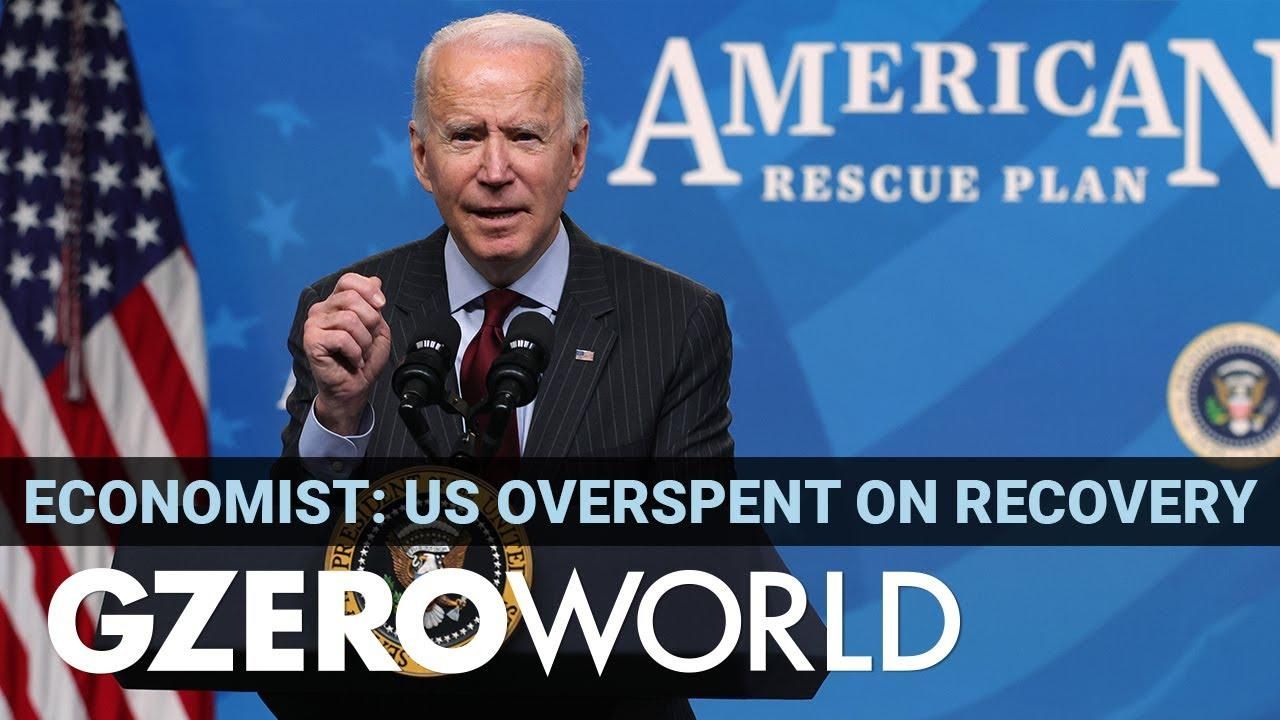GZERO World Clips
Trump & Biden spent too much on COVID stimulus, says Austan Goolsbee

Trump & Biden Spent Too Much On COVID Stimulus, Says Austan Goolsbee | GZERO World

The brief recession the US economy experienced during the pandemic was arguably the weirdest one ever.
Why? Because it was "an unprecedentedly steep downturn [followed by] an unprecedentedly rapid comeback," says economist and University of Chicago professor Austan Goolsbee tells Ian Bremmer on GZERO World.
What's more, that recession was driven by less demand for theoretically recession-proof services instead of stuff like goods and real estate.
And then there was the government response.
Goolsbee believes that President Joe Biden made the mistake of spending too much on the recovery to avoid the mistake of doing too little under the Obama administration. His take on the American Rescue Plan: "You would probably do smaller."
In this Quick Take, Ian Bremmer addresses the killing of Alex Pretti at a protest in Minneapolis, calling it “a tipping point” in America’s increasingly volatile politics.
Who decides the boundaries for artificial intelligence, and how do governments ensure public trust? Speaking at the 2026 World Economic Forum in Davos, Arancha González Laya, Dean of the Paris School of International Affairs and former Foreign Minister of Spain, emphasized the importance of clear regulations to maintain trust in technology.
Will AI change the balance of power in the world? At the 2026 World Economic Forum in Davos, Ian Bremmer addresses how artificial intelligence could redefine global politics, human behavior, and societal stability.
Ian Bremmer sits down with Finland’s President Alexander Stubb and the IMF’s Kristalina Georgieva on the sidelines of the World Economic Forum to discuss President Trump’s Greenland threats, the state of the global economy, and the future of the transatlantic relationship.